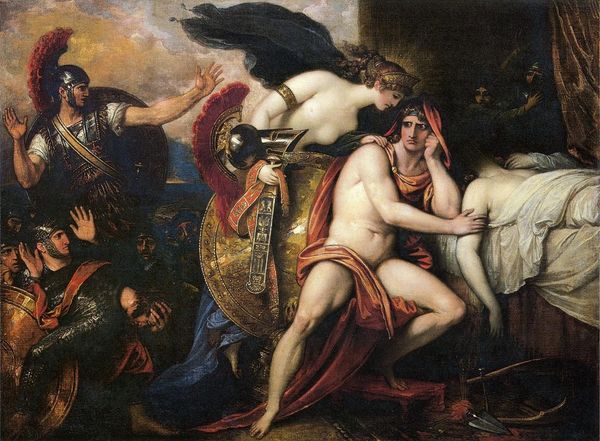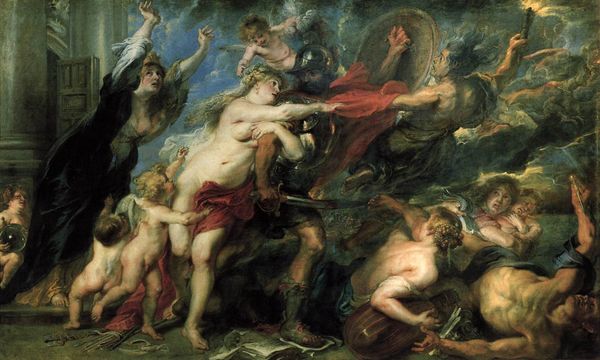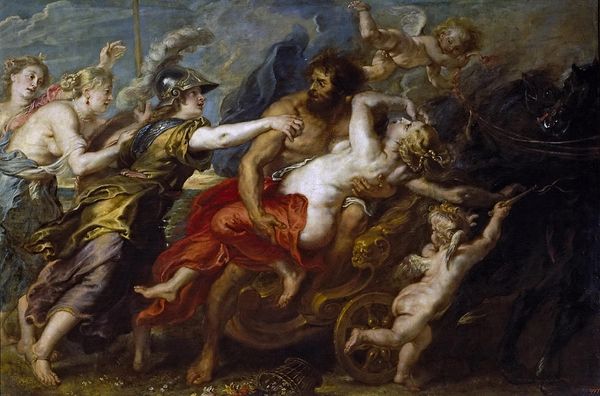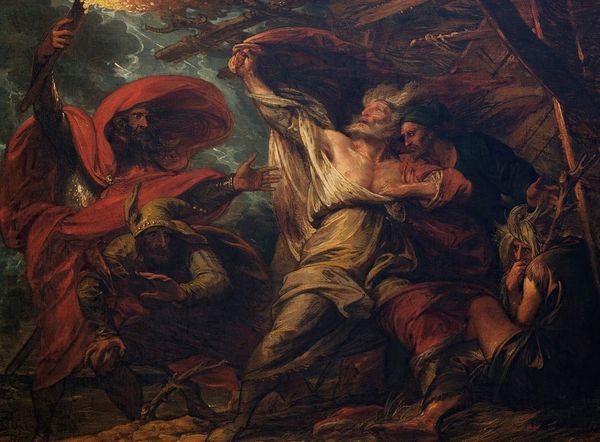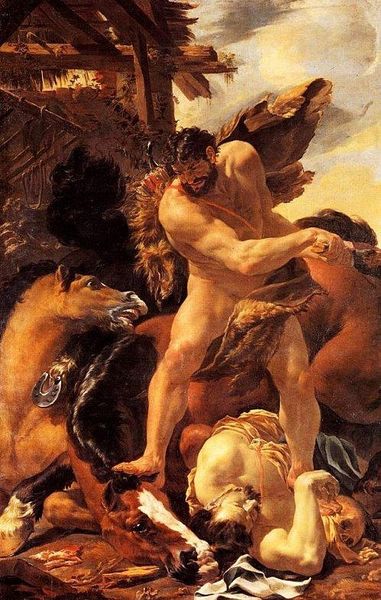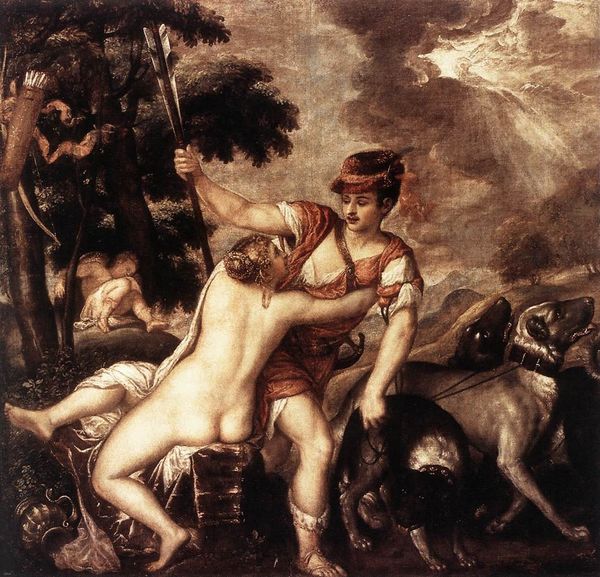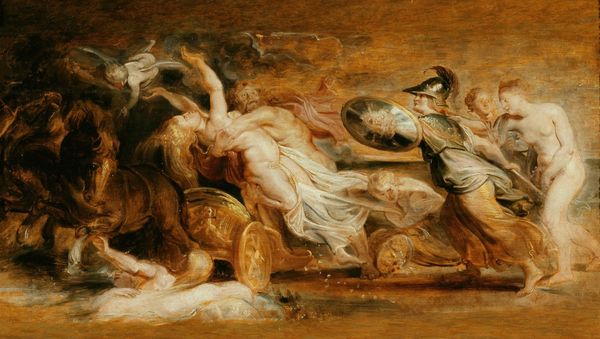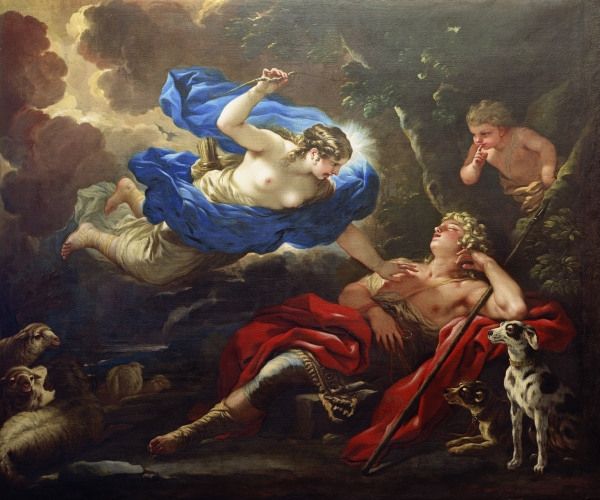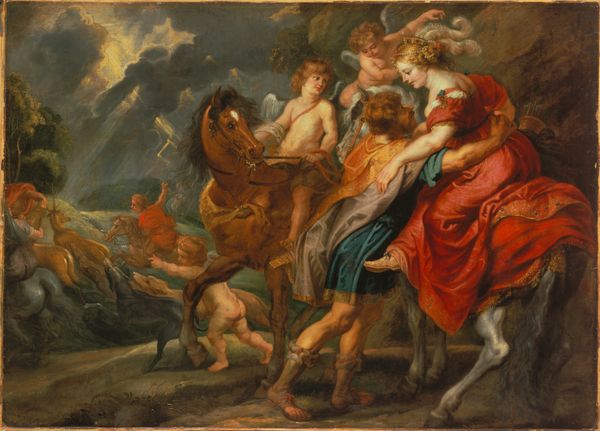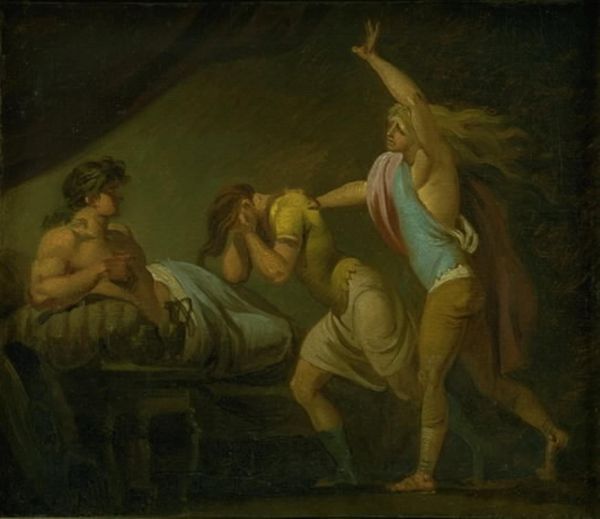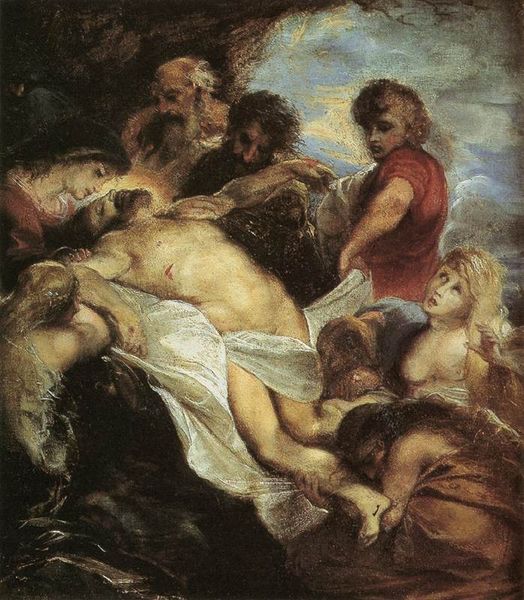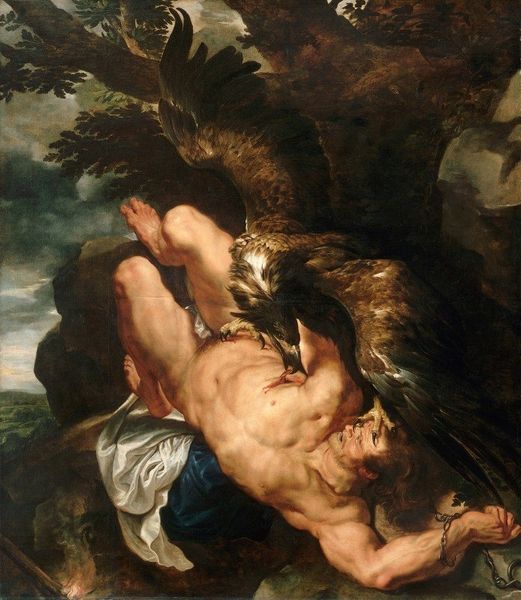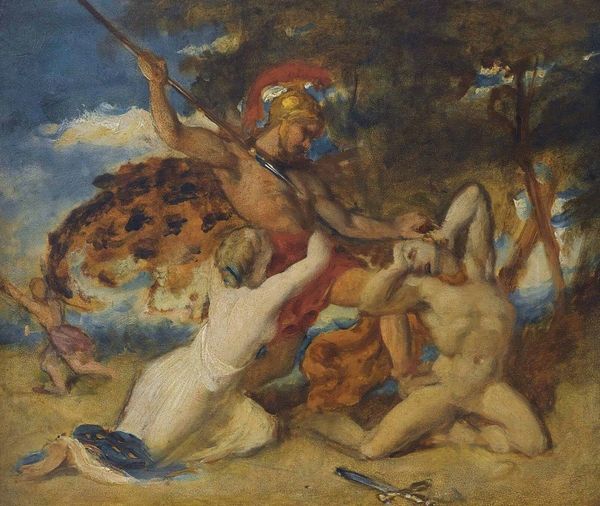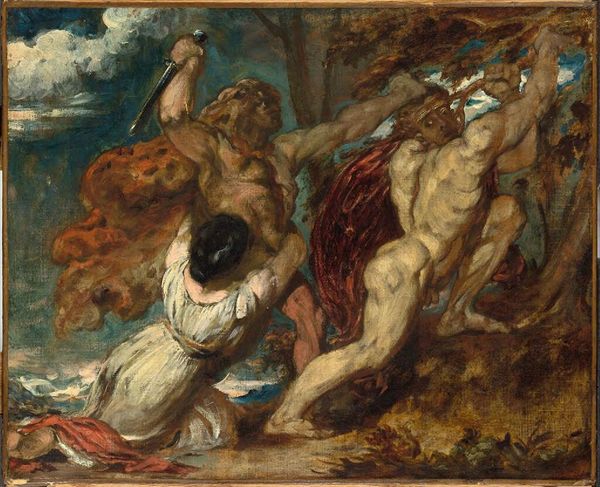
painting, oil-paint
#
allegory
#
baroque
#
painting
#
oil-paint
#
figuration
#
oil painting
#
mythology
#
painting painterly
#
history-painting
Copyright: Public domain
François Lemoyne painted this scene of Cephalus and Aurora using oils sometime before 1737. Immediately striking is the whirlwind composition, which thrusts the figures into a dynamic embrace. Lemoyne masterfully uses light and shadow to sculpt the bodies, enhancing the drama of the moment. The color palette, dominated by cool blues and warm flesh tones, creates a visual tension that mirrors the narrative. Aurora, the goddess of dawn, intercepts the mortal Cephalus, disrupting the natural order. Her forceful gesture is echoed by the diagonal thrust of her spear, further unsettling the composition. This work exemplifies the Rococo style, where art serves as a stage for complex dialogues about desire and power. Lemoyne employs asymmetry and a rejection of clear lines to suggest a world in flux. His loose brushwork blurs the boundaries between the figures, creating a sense of ambiguity. Ultimately, the painting becomes a space where the traditional meanings of love and divinity are questioned.
Comments
No comments
Be the first to comment and join the conversation on the ultimate creative platform.
